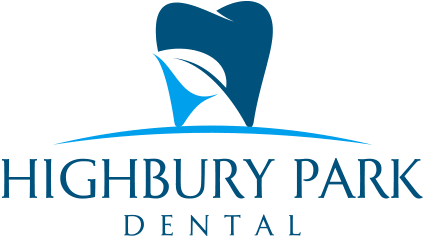Did you know that the food you eat can significantly impact your oral health? A balanced, nutritious diet is essential not only for maintaining a healthy body but also for promoting strong teeth and gums. Let’s explore the best foods for boosting oral health, learn which foods to avoid, and discover the dental benefits of vitamins and minerals.
We’ll even share some delicious tooth-friendly recipes and tips for staying hydrated. So, let’s get started on the path to a healthier, happier smile!
Best foods for strong teeth and gums
Incorporating certain foods into your diet can help strengthen your teeth and gums, providing essential nutrients for maintaining optimal oral health. Some tooth-friendly foods to consider include:
- Dairy products: Cheese, yogurt, and milk are rich in calcium and phosphorus, which help to remineralize tooth enamel and protect against decay. They also contain casein, a protein that can stabilize and repair damaged enamel.
- Leafy greens: Spinach, kale, and other leafy greens are packed with vitamins and minerals, including calcium, folic acid, and antioxidants, all of which contribute to strong teeth and healthy gums.
- Crunchy fruits and vegetables: Apples, carrots, and celery can act as natural toothbrushes, helping to scrub away plaque and stimulate saliva production, which neutralizes harmful acids and rinses away food particles.
- Nuts and seeds: Almonds, walnuts, and sunflower seeds are excellent sources of vitamins and minerals, such as calcium, magnesium, and vitamin E, which support strong teeth and healthy gums.
- Fish and lean meats: Fatty fish like salmon and lean meats like chicken and turkey provide essential nutrients like vitamin D and phosphorus, which help the body absorb and utilize calcium for stronger teeth and bones.
Foods to avoid for optimal oral health
While some foods can boost oral health, others can be detrimental to your teeth and gums. Limiting or avoiding these foods can help you maintain a healthy smile:
- Sugary snacks: Candy, cookies, and other sweets can contribute to tooth decay by providing fuel for cavity-causing bacteria.
- Starchy foods: Chips, crackers, and bread can break down into sugars in your mouth, increasing the risk of cavities.
- Acidic foods and beverages: Citrus fruits, tomatoes, and acidic drinks like soda can erode tooth enamel, making teeth more susceptible to decay.
- Sticky foods: Dried fruits and chewy candies can cling to teeth, prolonging exposure to sugar and increasing the risk of cavities.
- Hard foods: Ice, hard candies, and popcorn kernels can cause tooth fractures or damage dental restorations like crowns and fillings.
Dental benefits of vitamins and minerals
A balanced diet rich in vitamins and minerals can help promote strong teeth and healthy gums. Some essential nutrients for oral health include:
- Calcium: Builds and maintains strong teeth and bones, helps prevent tooth decay and gum disease.
- Phosphorus: Works with calcium to strengthen tooth enamel and supports healthy bone development.
- Vitamin D: Enhances calcium absorption and utilization, supports healthy teeth and bones.
- Vitamin C: Strengthens gums and connective tissues, aids in wound healing, and acts as an antioxidant.
- Vitamin A: Supports the formation and maintenance of healthy teeth, gums, and mucous membranes.
Delicious tooth-friendly recipes
Incorporating tooth-friendly foods into your meals can be both tasty and beneficial for your oral health. Here are some mouth-watering recipes to try:
- Greek yogurt parfait: Layer Greek yogurt with fresh berries, such as strawberries and blueberries, and top with a sprinkle of chopped almonds for a calcium-rich, antioxidant-packed snack that’s kind to your teeth.
- Spinach and feta stuffed chicken: Stuff boneless, skinless chicken breasts with a mixture of chopped spinach, crumbled feta cheese, and minced garlic. Bake until cooked through for a delicious, nutrient-dense meal that supports strong teeth and gums.
- Crunchy rainbow salad: Combine shredded carrots, chopped bell peppers, thinly sliced red cabbage, and julienned cucumber in a large bowl. Toss with your favorite vinaigrette dressing for a colorful, vitamin-rich salad that promotes oral health.
- Almond-crusted salmon: Coat salmon fillets in a mixture of ground almonds, lemon zest, and chopped parsley, then bake until flaky. This dish is packed with omega-3 fatty acids, calcium, and vitamin D, all of which contribute to strong teeth and bones.
- Kale and white bean soup: Simmer chopped kale, cannellini beans, and diced tomatoes in a savory vegetable broth for a hearty, tooth-friendly meal that’s rich in calcium, folic acid, and antioxidants.
Staying hydrated for better dental health
Proper hydration is essential for overall health, and it plays a crucial role in maintaining good oral health, too. Drinking water throughout the day can:
- Rinse away food particles: Water helps to cleanse your mouth, removing debris that can lead to plaque buildup and cavities.
- Neutralize harmful acids: Drinking water can dilute and wash away acids produced by bacteria, reducing the risk of tooth erosion and decay.
- Prevent dry mouth: Staying hydrated can help combat dry mouth, a condition that can increase the risk of cavities, gum disease, and bad breath.
Aim to drink at least eight 8-ounce glasses of water per day, and consider swapping sugary or acidic beverages for water, herbal tea, or milk to protect your teeth and gums.
In conclusion, a healthy diet rich in tooth-friendly foods, vitamins, and minerals can significantly impact your oral health.
By incorporating nutritious foods into your meals, avoiding harmful foods, and staying properly hydrated, you can help ensure a lifetime of happy, healthy smiles. So, go ahead and indulge in these delicious, dental health-boosting dishes—your teeth will thank you!

